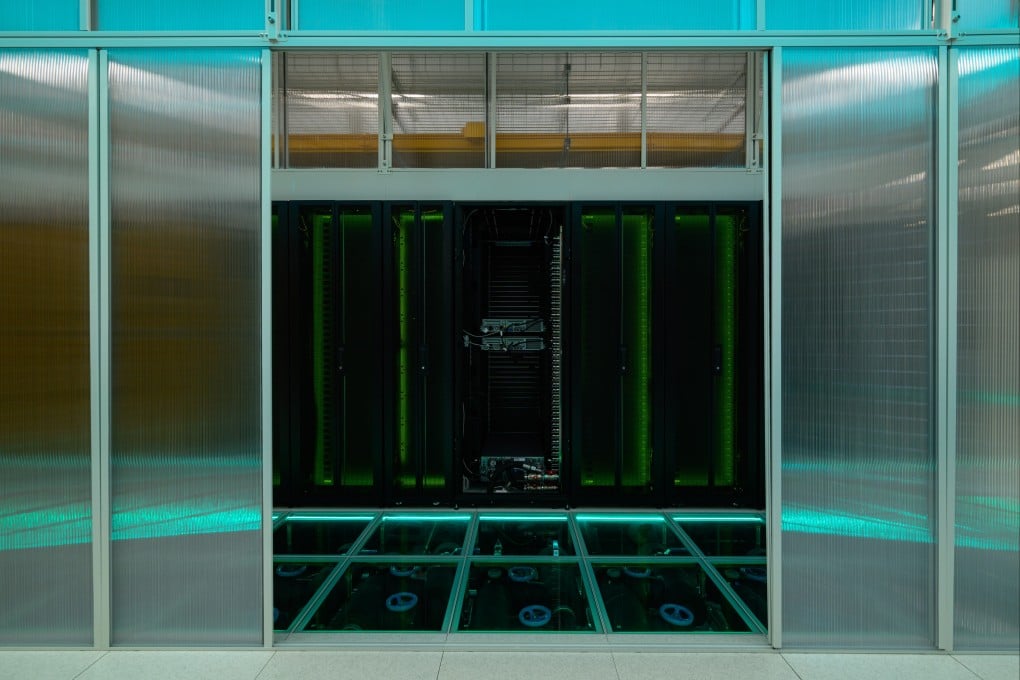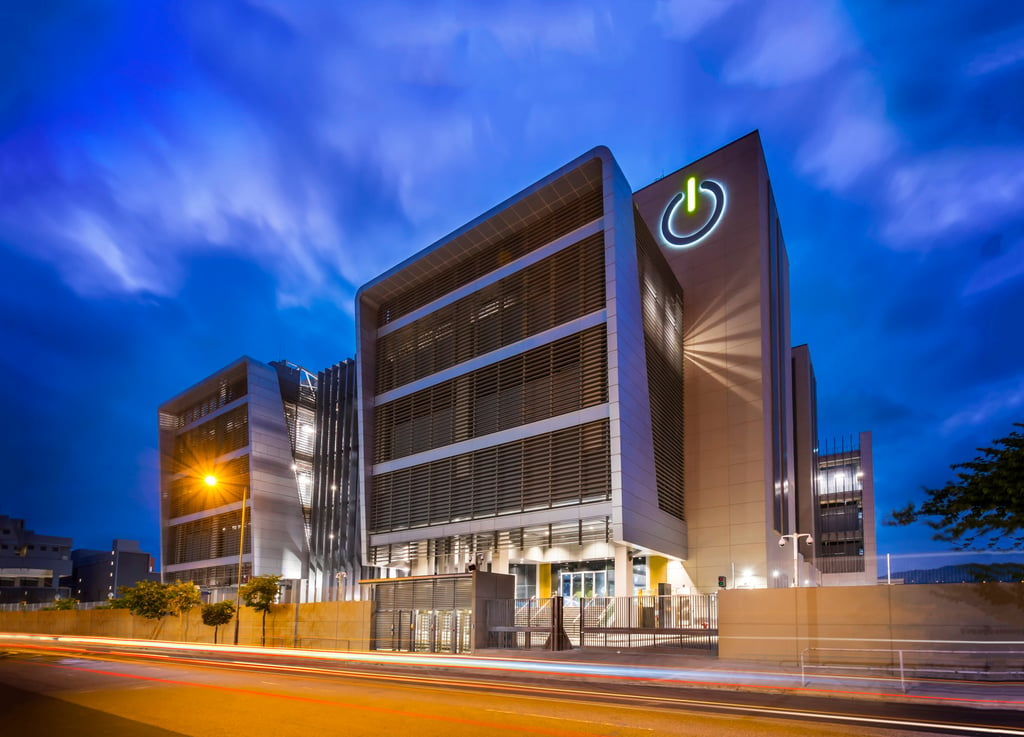As Chinese AI and GPU demand heats up, a Hong Kong data centre turns to liquid cooling
China-backed Global Switch is rolling out new liquid-cooling solutions in Hong Kong as its Tseung Kwan O facility see increased demand from the mainland

Global Switch, a data centre operator controlled by China’s state-backed Jiangsu Sha Steel Group, said demand from mainland artificial intelligence firms in Hong Kong is driving a need for new direct-to-chip cooling solutions it has started providing in the city.
“We’ve seen a huge increase in demand for higher and higher density racks,” said Ben Ryder, solutions engineering director at Global Switch. “In the last two years, we’ve seen requirements for 20 kilowatts [per rack] initially, 40 to 50, and now beyond that, up to 100 kilowatts, as we can support liquid cooling.”
Global Switch on Monday announced the availability of direct-to-chip liquid cooling in its 30-megawatt facility in Tseung Kwan O after last week inviting potential customers in to see what it called the first showcase of this solution in Hong Kong. Direct-to-chip cooling, which involves placing a cold plate with cool liquid running through it in direct contact with integrated circuits, is in increasing demand in data centres as power requirements for AI applications shoot up.

Global Switch said it does not have visibility into the tech that customers use in their servers, but power and cooling demands provide some insights.
“In Hong Kong it’s very clear that the main new demand comes from mainland China customers,” said Eric Liu, the Hong Kong managing director for Global Switch. “I think compared with a couple of years before, they are more open to new markets, and they are bringing out from mainland China their own technology to Hong Kong.”
In rolling out its new cooling solutions – which includes rear-door heat exchangers that combine liquid and air cooling – Global Switch has partnered with Supermicro, xFusion and Liquidstack. In its presentation ahead of a tour of the facility on September 10, Supermicro touted the capabilities of its servers running Nvidia’s H100 and H200, two of the AI chips that Washington has banned from export to China.
